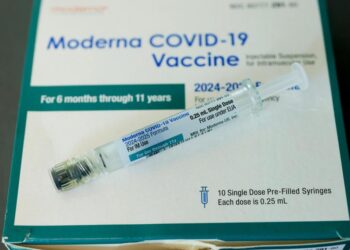Ariel Cohen | CQ-Roll Call (TNS)
WASHINGTON — State and federal health agencies are gearing up to respond to a new strain of mpox — the virus formerly known as monkeypox — if the new strain spreads to the United States.
But this time, they are doing so with fewer resources.
Both an mpox public health emergency declaration and federal pandemic preparedness law were still in effect in 2022, the last time the U.S. faced a widespread mpox outbreak. That gave the federal government and state health departments more resources and flexibility than it has now to deal with an outbreak.
Last month, the World Health Organization declared a public health emergency of international concern, the highest alarm under international health law, over the new mpox strain. The strain, known as clade 1b, has been rapidly circulating in central Africa and has been detected in Sweden and Thailand.
The new strain differs from the 2022 world outbreak of the clade IIb mpox strain, which U.S. officials treated with two doses of the JYNNEOS mpox vaccine. Much like the COVID-19 vaccines, the mpox shot JYNNEOS prevents severe infection, hospitalization and death from mpox, but doesn’t fully prevent transmission, according to the Centers for Disease Control and Prevention.
Clade 1b is endemic in the Democratic Republic of Congo, and the strain is more widespread than any other outbreak. Clade 1b usually causes a higher percentage of people with mpox to get severely sick and die, compared to clade IIb, according to the CDC.
While clade 1b has not yet been detected in the U.S., state and federal health officials are gearing up for what could be a potentially worse outbreak than in 2022 by leaning on the lessons it learned two years ago.
“It’s a different ballgame than in 2022, in some ways that are better and in some ways that are TBD,” Jen Kates, senior vice president and director of global health and HIV policy at KFF, said. She noted that public health jurisdictions…
Read the full article here







